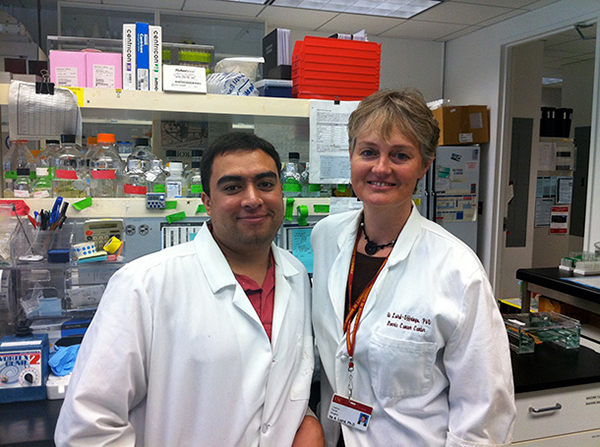
Mario Pulido, PhD, first author of the study, and Ite Laird-Offringa. Their work on isoaspartylation could provide a key to immunotherapy for small cell lung cancer.
A study published in the Journal of Neuroimmunology and led by Ite Laird-Offringa, PhD, associate professor of surgery and associate dean of graduate affairs at the Keck School of Medicine of USC, suggests that the human body can detect and create an immune response to small cell lung cancer, which maybe helpful to develop new therapies and detection methods.
The key lies in isoaspartylation, a process that damages amino acids and changes the shape of neuronal ELAVL proteins expressed in the tumors. The immune response of patients to this isoaspartylation spans the gamut from no response to such a strong immune response that patients develop severe and lethal autoimmune disease.
About one-fifth of patients develop a moderate immune response to isoaspartylation and have better overall survival to small cell lung cancer.
“If we can use isoaspartylated ELAVL proteins to elicit an ideal immune response that can fight small cell lung cancer, we may be able to offer a new therapy for this disease. Who knows … one day we may even be able to prevent it in people who are most at risk, including current and former smokers,” Laird-Offringa said.
By Mary Dacuma